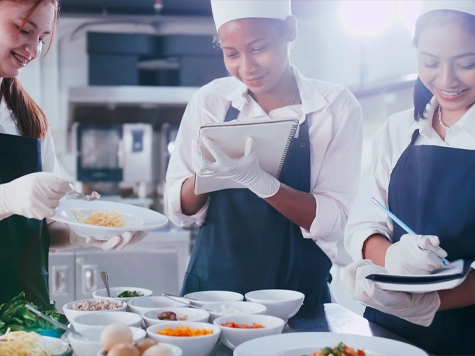Food Businesses
-

Licences
Are you starting a new food business or taking over an existing food business? Then you may need a food business licence. -

Training
A food business must ensure that persons undertaking or supervising food handling operations have the necessary skills and knowledge for their work activities. -

Resources
Environmental Health Services has a range of information sheets and printable record keeping templates for businesses or interested members of the community.





